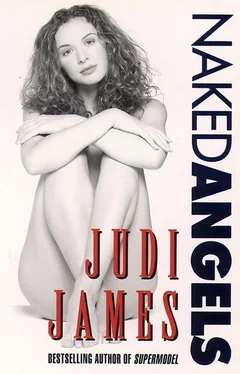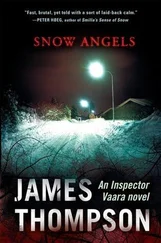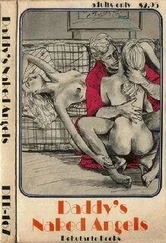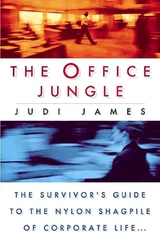1 ...6 7 8 10 11 12 ...23 ‘Patrick! Mommy! Daddy! Lincoln!’ She knew they’d never left her really and she was too pleased to be mad with them for disappearing like that.
‘Evangeline!’ So she’d woken her grandmother after all. ‘Evangeline!’ The old girl could holler louder than she’d thought. Her voice had a high, rasping quality that made it more like a scream than just a yell.
Evangeline took off down the sand flats, towards the sound of Patrick’s howls, her brown frizzed hair streaming out behind her like a banner.
‘Evangeline!’ She wished her grandmother would be quiet so she could hear the dog instead. She’d forgotten where the sound was coming from and she couldn’t see further than a few feet in the fog.
The sand was wet and sucked at her feet. She ran until her legs were tired and then she ran some more with them aching. Her feet got heavy with the sand and then suddenly they were heavy with water. She stopped. ‘Patrick!’
There was water on her legs. It hit the top of her boots and then – colder even than ice – it fell inside the boots with a rush.
‘Oh my.’ It was all she could think of to say and it came out in one word, like a sigh. She looked back, but there was no back any more, it had all gone in the fog. The smell of the sea overwhelmed her and the hiss of the surf was all around. Her bones began to ache from the cold but she wasn’t scared yet.
Yoo-hoo!’ she hollered, so Darius would know it was her, and at that moment there was a sharp tugging at her legs as the cross-current came to take her away.
It was the chauffeur who snatched her back, as naked as nature intended, because Grandma Klippel had not given him the option of dressing after she tipped him out of his bed. The man had plunged into the surf like an athlete and wrenched Evangeline up just as the boots were being pulled off her legs by the current.
She popped straight up like a cork from a bottle, unable to differentiate between dark and light and the sea and the shore. He carried her off roughly, hurting her arms.
Her grandmother was waiting on the dunes, her hair as wild as the marsh grass. Her teeth were missing. She carried a storm-torch in her hands and she shone it full into Evangeline’s face.
‘What in God’s name were you up to, child?’ Her voice sounded spitty and stretched out and thin with anger and concern.
‘I heard them, Grandma, they’re coming back. I went to look for them in case they missed me.’ ‘You heard them?’
Evangeline was suddenly short of air. ‘I heard Patrick, Grandma, he’s barking out there somewhere in the dark. I think he smelt me, you know. He used to be a hunting hound and he can smell…’
Her grandmother dropped the torch suddenly and seized Evangeline’s face in her white hands. ‘Listen,’ she said. ‘Listen to what you heard.’
There was a noise, a noise somewhere out at sea. A lonely noise. The noise Evangeline had taken for Patrick’s howls.
‘It was a foghorn,’ Grandma Klippel said angrily, ‘just a foghorn. They’re not coming back. Now why won’t you believe me?’ Her voice sounded like the sea’s voice; whispery and tired and dull. ‘Evangeline, I told you you had to be good,’ she said, sadly. ‘I thought you understood.’
The chauffeur shook water off himself like a dog and droplets flew out from his body.
On the slow walk back to the house Evangeline looked out across the beach. ‘I know you’re out there somewhere, waiting for me,’ she whispered to her parents under her breath, ‘I know you’re just lost, that’s all. I’ll be good and I know I’ll find you, don’t worry. I promise.’
The first metro train of the morning rattled slowly out of the terminal at Vorosmarty ter, waking the boy up. His nose was running and his bones felt as though they had been cemented in the night. Andreas was dead. It was the first thought of the day every day. It came followed closely by self-pity and then, as he woke properly, by unbearable, crushing guilt. The guilt was like a large balloon in his chest that got inflated every morning. What had he done? Why was he alive? He had no right, no right at all, now that his brother was dead.
He saw Andreas every day. His brother was haunting him. The thought made him shake, but he knew it to be true. His brother never came close – he was always hiding in crowds and dodging round corners – but he’d confront him one day, Mikhail was sure of it.
He had no one else. His mother was gone. Once he had thought about her a lot, but now he no longer knew what it was he should be thinking. Andreas had been his only parent and he had loved him all the more for that. Then he had done the terrible thing, and now he was scared of him.
Someone was watching. Maybe it was the police at last. He knew they would come for him. He wanted to pee but instead he stood up slowly, shoving his hands deep inside his trouser pockets, and mooched off casually. His black hair looked wet with grease and his face was so pale you could see veins through the skin. He walked quickly but he didn’t run. If you ran you looked as though you were up to no good. Walking with your hands in your pockets looked like you were just on your way to somewhere else.
He could hear music playing – a violin or a cello. The sound came from the railwaymen’s huts nearby. There was a smell of fresh coffee, too. Mikhail felt his stomach begin to contract with hunger. The men in there would be shaving. He thought he could smell the soap – lavender, maybe. It was as though the balloon in his chest had burst. Beads of angry sweat appeared on his forehead, even though it was winter and well below zero outside. He sobbed out loud and kicked at the wall as he passed it, and a lump of china tile fell off onto the ground.
The metro was old. The place was crumbling. The smell of the coffee wouldn’t go away, even though he had passed the last of the huts now.
The station was not a deep one and there were only a few steps to the pavement. The air that hit him was so cold he almost urinated where he stood. He set off for the old fruit market to steal some food.
They had made him go to a hostel at first, after Andreas’s death. The place was warm and the food first-rate, but he had found he couldn’t stand the fear of waiting all the time to be arrested. They would have come for him before long, he was sure of that. The two policemen at the mortuary had looked at him as though they’d known something was up. He couldn’t just wait for them; he’d had to run away.
He’d gone back to the room he’d shared with his brother, but the locks had been changed, which didn’t surprise him. He’d tried with his penknife, just in case, but the padlock held firm. Maybe it was just as well – they would have come for him there too, sooner or later. He’d wanted to get inside for a little while, though, just to check; to make sure things had really happened as they had.
So now he was living on the street. Andreas would have been mad with him – it was the one thing they’d always avoided. He pushed off down Vaci utca and past all the old pastry shops. The wind was cold but he wore his brother’s coat and it was a good one; it kept him almost warm.
He had always envied Andreas’s heavy coat and now it belonged to him. It had been lying around at the mortuary and he’d taken it, just like that. It was too big but that was all the better because it kept his legs warm, too. That was the other thing about the hostel: they had made all the boys wear short pants and he had felt stupid in them, like a child. He was twelve years old, nearly thirteen. No one of his age should be made to wear short pants, it was ridiculous.
He pulled one of Andreas’s cigarettes out of the breast pocket of Andreas’s coat and lit it with a match from Andreas’s box. The smoke kept his mouth warm. He cupped his hands over his face and inhaled as deeply as he could.
Читать дальше












